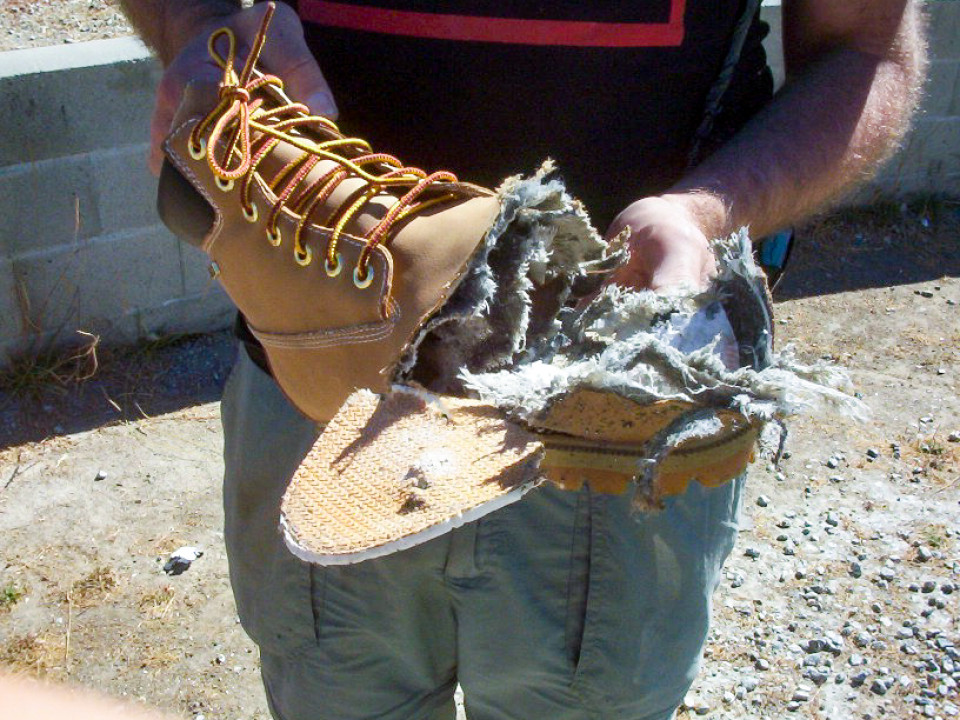Organisational Toxicity - A loss of Moral Character?

The discussion on Organisational Toxicity was, apparently, interesting to a number of people. Which is, perhaps, an indication as to how concerned we are about the issue.
As I reviewed comments I was directed time and time again to stories about Humanitarian agencies and the abuse of women and girls. A number of otherwise reputable organisations have revealed, or been forced to admit, to instances where staff, often very experienced and senior, have conducted themselves in ways that are more than disturbing, often appalling. The principle of "Do No Harm" appears to not only have been forgotten but trampled under foot.
One of the analogies often applied is that of cancer. These events are described as a kind of tumour in an otherwise healthy body. This tumour causes great distress and harm to those the organisation seek to assist. Once identified the preferred action is to 'excise the tumour'.
I think, however, that the analogy of cancer is inaccurate. If we are to use medical terminology as a way of describing this abuse of power, position and privilege, then a more accurate analogy is that of blood poisoning. Technically I am thinking of 'sepsis', which is a severe and often life-threatening condition where the immune system of the whole body is compromised by infection such as bacteria, or a virus or fungus. There are a variety of ways in which these infections can enter the bloodstream, but once in they are very hard to get out.
For humans there is a 50% mortality rate. This is sobering.
The problem is that every organ in the body is exposed to the infection and very quickly there is a cascade effect around the body as organ after organ is impacted. Where the infected person already has an impacted immune system or some other condition the outlook is extremely bleak.
I suspect that many INGO's have a kind of institutional 'sepsis' that is only now revealing itself. Having worked inside very large global NGO"s I know that the incidence of unreported or covered over events similar to the ones in the public media are much higher than anyone would desire.
If I am correct, then where did we go wrong? How did this 'infection' begin?
I can't help but reflect on the role that the professionalisation of humanitarian work may have played. Before we go on, let me be very clear. A professional humanitarian work sector is essential to any success. The world absolutely needs a fully skilled and professional team of humanitarian workers. To think otherwise is foolish.
However, the process of becoming professional has an overwhelming focus on skills and knowledge, bathed in experience. What has taken a back seat is the factor we can call 'character'. Character is connected to ethics and morality. Character is connected to integrity.
Character is also linked to resilience.
Much of the early humanitarian activity was conducted by religious communities, working from a framework of belief and service. The truth is that a lot of this was alarmingly amateur and connected with colonial actions. It needed to change.
But I wonder if by focusing on a core of skills, knowledge and experience, with all the detailed measurement processes accompanying the processes, we may have lost sight of moral character?
If, to follow the medical analogy to its demise, organisational toxicity is in the bloodstream, then excising the obvious tumours is not a cure. In fact it hides the causes. I have seen this happen, too often. I could (but definitely won't!) include the names of a number of people I have worked alongside in the sector who are devoid of moral character. The influence of this moral vacuum on organisational processes is clear and obvious.
Staff who attempt to deal openly with this condition find themselves very quickly the focus of destructive behaviours both personally and structurally.
If sepsis is such a major condition then how can we deal with it?
There are two actions. The first is for the individual. If you find yourself in the 'bloodstream' of an organisation suffering from septicaemia, then my advice is to get out. The risk factors to you personally are very high.
For organisations this is a criss. Not just a moral crisis but an operational crisis. Where morality is compromised then public profile is compromised. Donors will turn away. Host governments will close the doors. At some point soon there will be a legal class action filed by some group somewhere and the results will not be pretty.
Humans with sepsis survive with intensive care. A full-on medical intervention with all the skills and resources of the medical profession. Even then the survival rates are low. Permanent damage is almost certain.
Am I overstating the problem? Possibly. But the world is today in the midst of a major moral crisis. Political leaderships is either morally bankrupt or seemingly powerless. In that context the humanitarian imperative to provide and care for impacted people becomes even harder to achieve. If we as humanitarians wish to continue to "Do No Harm" we need to address the toxicity in our own organisations. To do this successfully will be difficult, but it is urgent.
Read next
A Brief Collapse of Time
We are in lockdown. What day is it? One of the most common comments on social media is the old joke about yesterday, today, tomorrow, everyday.
Read more50 Dead - Resilience Reflection #3 - Social Cohesion
We know that relationships are both protective and growth-promoting.
Read more50 Dead - Resilience Reflection #2 - Leadership
Leadership and resilience are interconnected. This isn’t a new finding, of course. But rarely do we experience examples of how leadership supports, mediates and builds leadership.
Read more

